The Gallery Studio – by Mike Lizotte
A peak inside one of Connecticut's oldest recording studios and interview with the man who started it and continues to operate it after 50+ years in the business, Doug Clark.
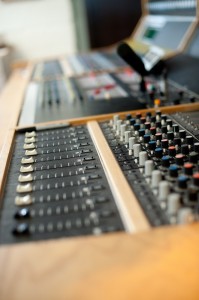
I'de like to preface this interview with my own back story on how I came to meet and know Doug Clark. In 2012 I happened by chance to meet Mr. Clark's daughter Melissa. She told me her father had a recording studio. Being a home recordist, I did not get out to real studios very often. Melissa showed me her fathers studio and I read the sign “The Gallery”. I had heard of The Gallery but did not know anything about it. I decided to stop in during business hours, in an attempt to take a peak around and marvel at all the gear I couldn't afford, and probably didn't know how to use.
The next day, I dropped by the studio, where I met longtime Gallery employees Roz and Suzie. They were very friendly and charming, they also had no idea I was only there to drool over expensive studio gear and possibly beg for a chance to put my hands on a real mixing console. Looking back, had I just stated my selfish intentions, I bet they still would have been just as friendly and charming.
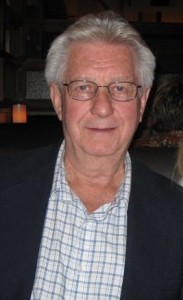
At first glance upon entering the studio, I saw several computer stations, a lot of electronic and music equipment in various states of repair, an entire rack of VCR's 8-track players, DVD players and a bunch of other things that I did not have a name for. I then met Doug Clark. He was very friendly and invited me in. I put my cards on the table and told him I just learned of his studio and wanted to check it out. Doug was inviting and took me for a tour into the music studio section. I observed dozens of headphones neatly placed on the wall, a wall of chords that were neatly wrapped and secured with ties. This was nothing like my home studio already! I then seen Doug's custom made 16 Channel mixing console. Like most home recordists would react, I was stopped short in my tracks, having a vision of me working frantically on the console, moving sliders and pressing buttons at a feverish pace while Dream Theater was doing a live take in the next room. Reality hit moments later when I realized I didn't know what many of the buttons did, besides the sliders and EQ. Doug explained he recorded through the console into an ADAT machine, which then outputted into a 2 track stereo into the computer.
Doug continued the tour around the studio, and then extended into his whole business. The Gallery not only records, mixes and masters music, but they do packaging, artwork, duplication, video recording, commercials, video editing, video duplication, equipment repair and probably many more things. I was very impressed. Doug spoke to me about electronics and showed me various pre-amps he had built, as well as the custom patch bay he made on his console. Much of the conversation was over my head, but I kept occupied knowing that I had also just touched a Neumann U87 for the first time.
Since 2012 I have gotten to know Doug well, and have grown even more impressed with his knowledge and skill. If there was a way to download knowledge from someone's brain in to mine, Doug would be high on my list of brain's to download.
At WWW.HomeRecordingWizard.Com we speak about everything home recording, but in this case I decided to pick the brain of a long time, established studio owner, to share with us how his business has changed over the years. It is the change in the industry, which has brought us to the home recording revolution.
Doug Clark Interview
Mike Lizotte - How did you get interested in the recording industry?
Doug Clark – I first had a TV repair shop and then I thought it would be fun to have a studio, so I bought a small 2-track recorder. I can't remember the name of it, but it was a ¼ track stereo machine.
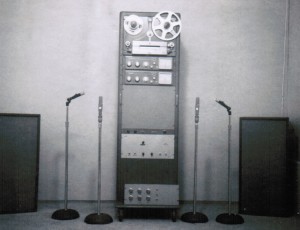
ML - What got you interested in music?
DC -That's a good question. I enjoy working with people. I am not a musician, so it's not the music per se. I just enjoy working with people.
ML - What year did you open your studio
DC – I started the business in 1961, so probably recording 2-3 years after that in the basement.
ML - Do you remember your first major gear purchase
DC - Probably a ½ inch 4-channel Atari recorder.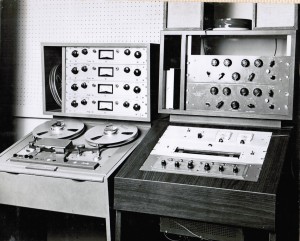
ML – The only Atari I know is Pac Man (laughs). Do you remember how much that cost at the time?
DC – Maybe around four thousand dollars or something like that.
ML – Did you buy that right off the bat to get the studio going? Or were you up and running already?
DC – I was already going for around 4 years.
ML - Can you describe a typical recording session when you first opened your studio.
DC – The first sessions I did were typically setting up a bunch of mics in the studio and everyone played live. I had around four microphones at that time. I would also take the tape machine out to the clubs and record live performances.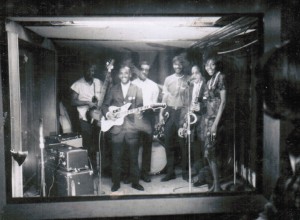
ML – Were you going straight into the Atari recorder?
DC – I went through pre-amps. I don't remember what kind, it might have been something I built. It was around that time that I got into electronics and began designing and building consoles.
ML – How many consoles have you built?
DC – Probably around 10.
ML – How many channels on the consoles?
DC – The largest one I've built was 24 channels, and that's the one in there (points to console in current studio)
ML – How many years have you been using the current console?
DC – Around 17 years. All analog with custom built pre-amps.
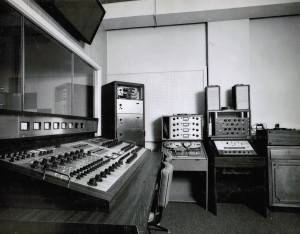
ML – Do you still build your own pre-amps?
CD – I kind of got out of the pre-amp manufacturing
ML - You have an original PLATE reverb set up, do you prefer that over Software reverb.
DC – No, I would say it's a different tool. If you have a screw driver, sometimes you use a Phillips, sometimes you use a Flathead, it's just a different tool. A little more organic sounding.
ML – Do you still use it often?
DC – Not that often, it's faster to go in the computer for a sound.
ML - You have not totally changed over into digital recording and mixing. Is that due to a preference for analog sound, Or is it more a gear and workflow preference?
DC – I record into an ADAT machine, then in to a 2-track digital. I haven't found a reason to switch over to completely digital because I can meet my customers needs with the equipment I have.
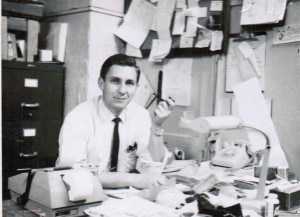
ML - You also Master music for others. Do you notice a difference in sound quality between stuff recorded on an Analog platform compared to digital?
DC – I would say yes. Analog is a little more smooth. Digital, depending on how it was recorded can be a little harsh on the high end. People often bring me their music to Master, which they recorded in Pro Tools.
ML – Do you think the harshness has to do with digital, or do you think it could be simply people recording at home and not in a real studio, under the guidance of an experienced engineer?
DC – I don't know if this will answer the question or not, but when you record live analog instruments together, you get bleed from the other instruments into each mic. I get a lot of mixes given to me which are all samples and there is no air in the recordings, like it's real close. It makes a big difference in sound.
ML - What do you think of modern music and the loudness wars?
DC – There is this thing called the Fletcher Munson curve. Basically, what it says is if you perceive the highs and lows a certain way, when you bring the volume up, your brain will add highs and lows. This tricks people in to believing louder sounds better. In reality, if you simply use the volume knob on your stereo, it will do the same thing.
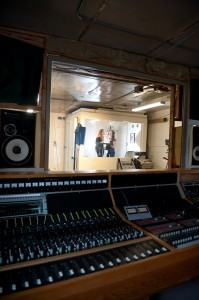
ML – So when you're Mastering music, do you try and get it as loud as you can, or are you trying to keep some dynamics in the music.
DC – It depends. It depends on the type of music. Some styles of music you can compress until it distorts and that's what the client wants. On the other hand if you have a piano with big spikes in it, compressing it will sound terrible.
ML – Do any of your clients ask you to get it as loud as you can?
DC – Absolutely (laughs). I think that's part of the American Dream – bigger is better. Bigger houses, louder sounds, that whole thing.
ML - It is no secret that many professional music studios have closed their doors in recent years, Do you feel this is because of the ease of which everyone can record at home on their computers?
DC – When things were really busy for me in the studio, bands used to come in and record several tunes and they were getting air play. It's almost impossible to get air play now. The bands are not making money anymore. They can put their songs on Itunes and make pennies but if they spend a thousand dollars in the studio, there's no way for them to make that back.
ML - What has been your secret to staying in business for 50 plus years?
DC – Diversifying is one.. Recording is just the beginning for us.. We have the art department, packaging, printing, shrink wrap, duplication. Sometimes if one area is slow another one is busy. Or sometimes they all get busy. Some of the big studios in New York, all they did was record, when that died down they were out of business.
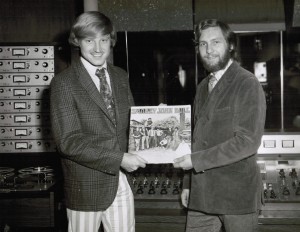
ML -You offer a lot of services here, including video and video editing services, repairs etc, is diversity key to staying in the game?
DC – Yes. I heard a seminar once. It said “find out whats wanted and needed, and produce it”. I am always looking to see what people want, not what I can push on them.
ML – Sounds like great advice and a great quote.
ML – When you first started, was music recording your main source of income for the studio?
DC – No, it was repairs.
ML – Did music recording ever take that over?
DC – Slowly. Here is a little story. When I first started on the 2-track machine, when someone wanted an overdub, I would pull out the erase head, so it would record on top of something that was already recorded, without erasing it. This would give you a second track. The only this is, if you screwed up a second time, you would have to go back and re-record the first one again. (laugh). Once the 4 channel recorders started coming out, people couldn't overdub on them because you could not listen back from the record head while it was playing. So what I did was put little micro switches in them so you could switch it. People then started bringing me their machines and saying “Doug, I want to be able to overdub on this machine, can you do your little magic with the switches?” I did that for a while, then of course after that, Tascam, Teac and those companies started coming out with that provision for it.
ML – When did you expand in to the rest of your services? The art, video, etc.
DC – It popped up slowly over the years when there was a need for it. We used to do our own vinyl Mastering. When customers started asking how they would get their duplications, artwork and packaging I saw the opportunity and was almost forced in to those services.
ML – When did the video services come about?
DC – As I saw music studios going out of business, I knew I had to go in to other things.
ML - With less studios available, do you think it is harder today, than in the past, for an aspiring recording engineer to learn their craft? Given the limited opportunities to learn directly from experienced studio engineers, such as yourself?
DC – I never took in an intern and there is good reason for that. You spend a lot of time and invest in someone, then they will leave your studio. I do consulting work however. Smaller studios will come to me looking for advice and have me come to their studios to see what they are doing wrong. I have a consulting service for that. One misconception people have is, they believe it's the equipment. A lot of people just don't know how to work the equipment that they have.
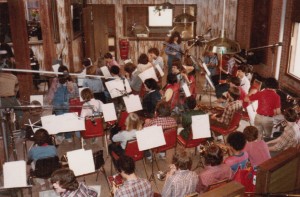
ML - Do you have any advice for aspiring studio owners in this day and age?
DC – I hit the music business at just the right time. People would ask me if I knew how to mic different instruments, pianos? Yes. Saxophone? Yes. Accordion? Yes. A lot of that stuff doesn't exist anymore. There was a lot of variety back then and you could learn different things. Today, it seems it's more rock band related. Not too many Polka bands recording nowadays. Today's engineers aren't going to get those opportunities. I would suggest just buying a couple microphones and start recording people and learn. Try to find a niche, Classical, rap, rock etc. Everything you hear on the radio or Tv was recorded somewhere.
4/26/14